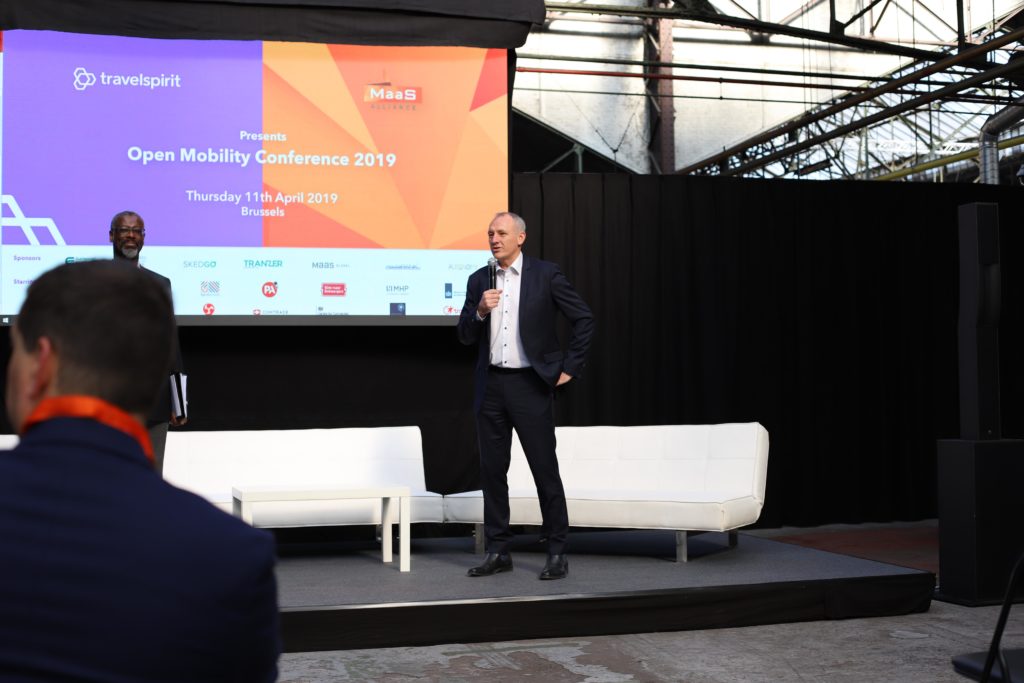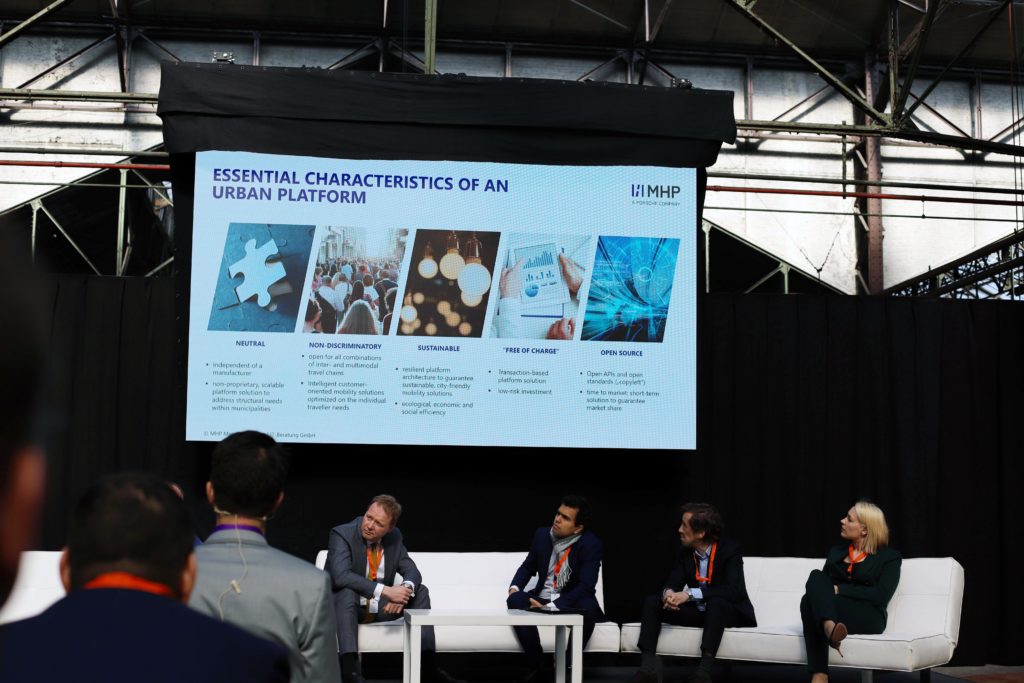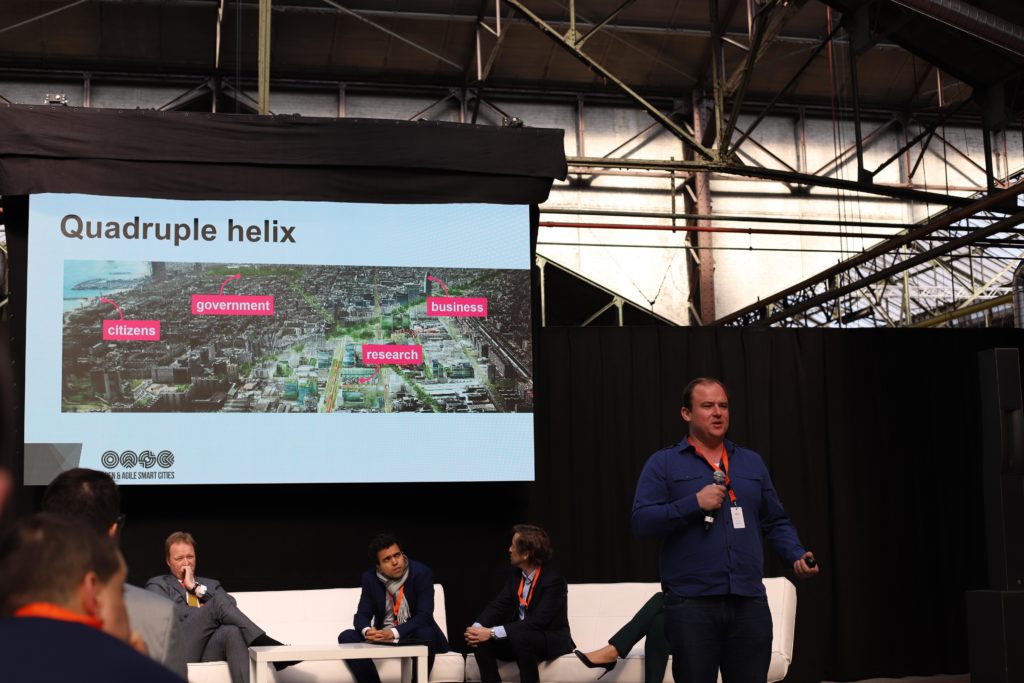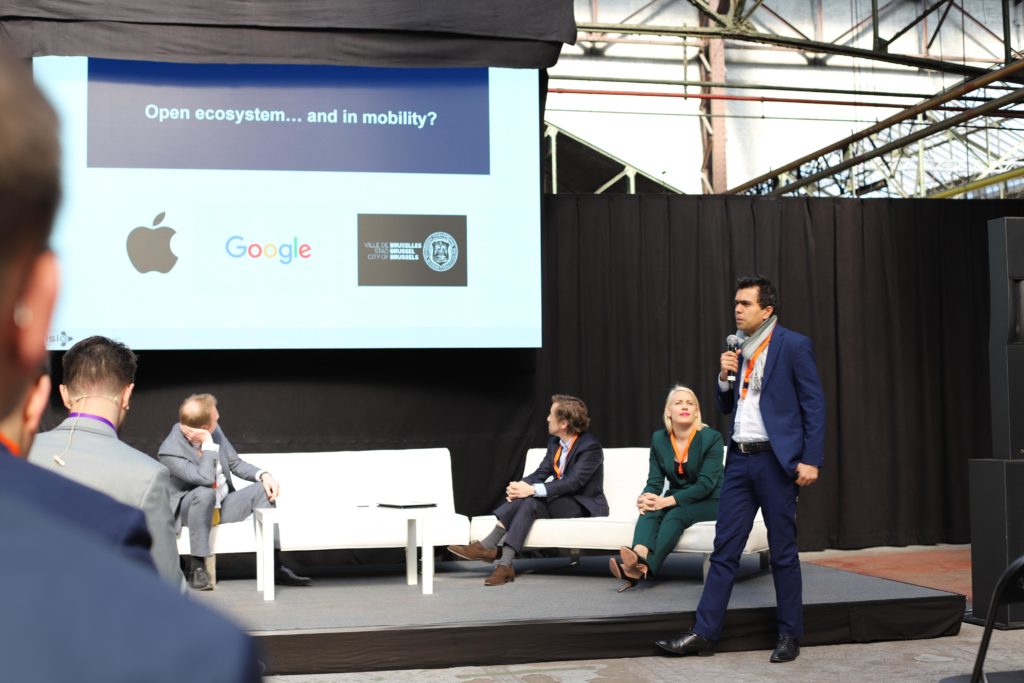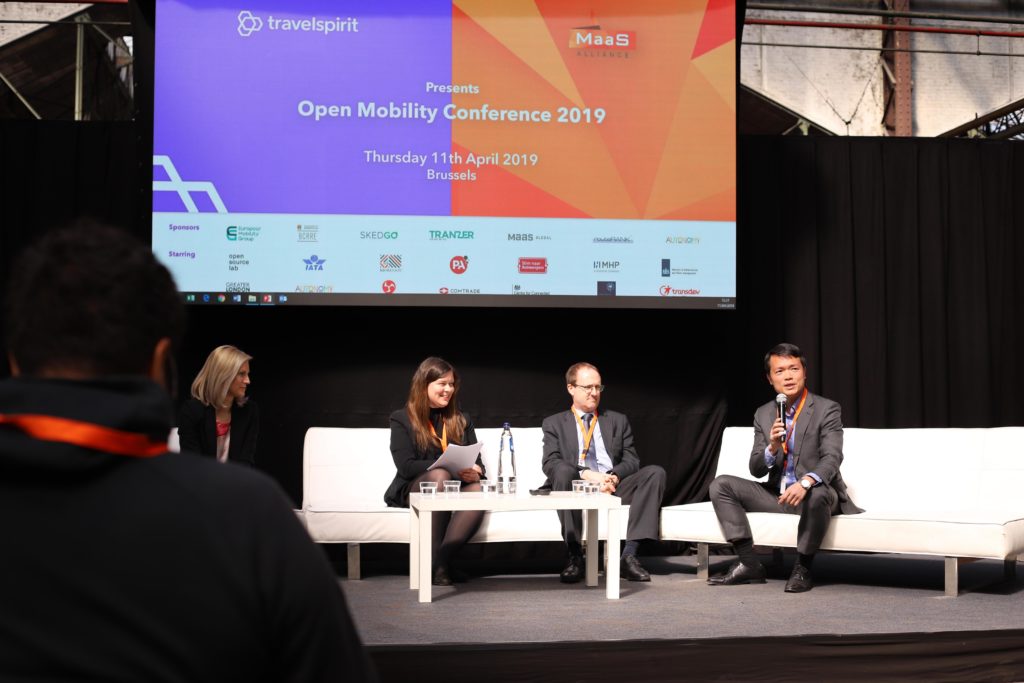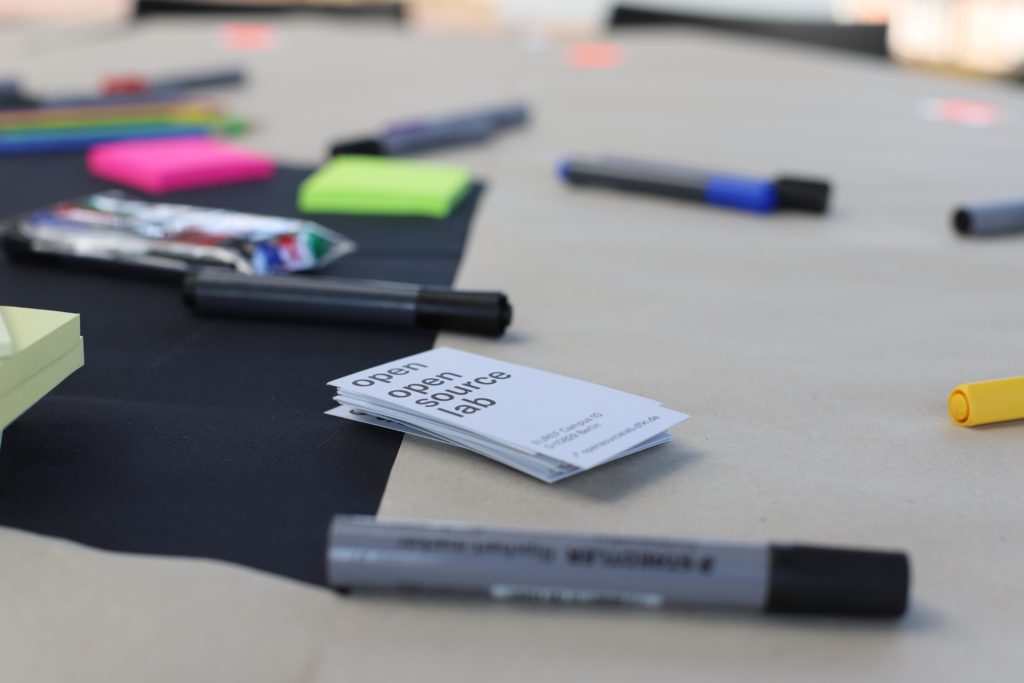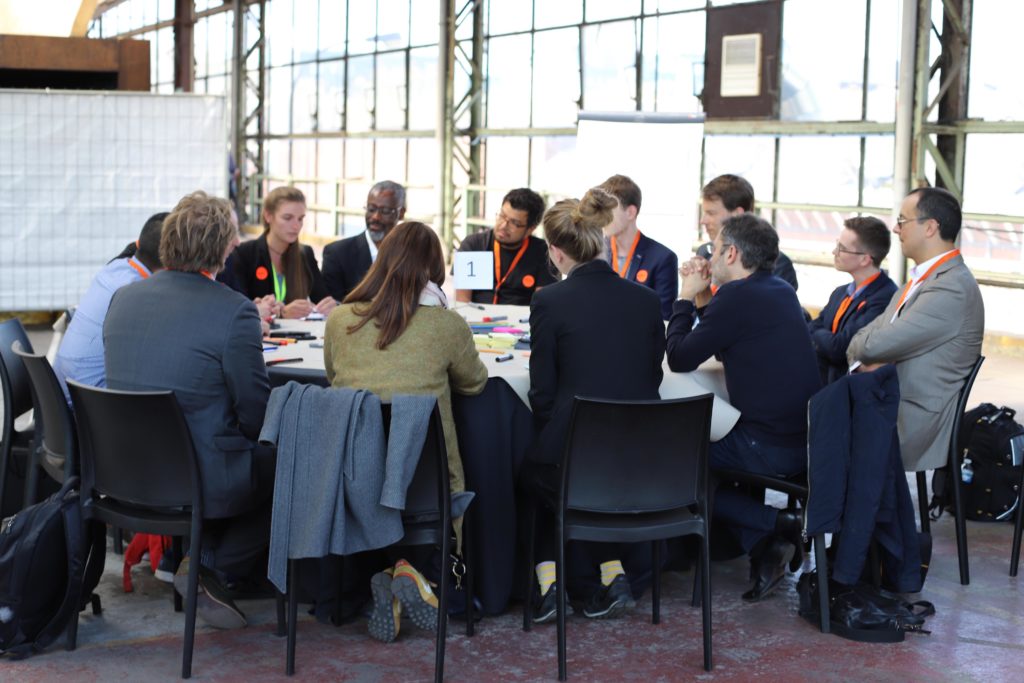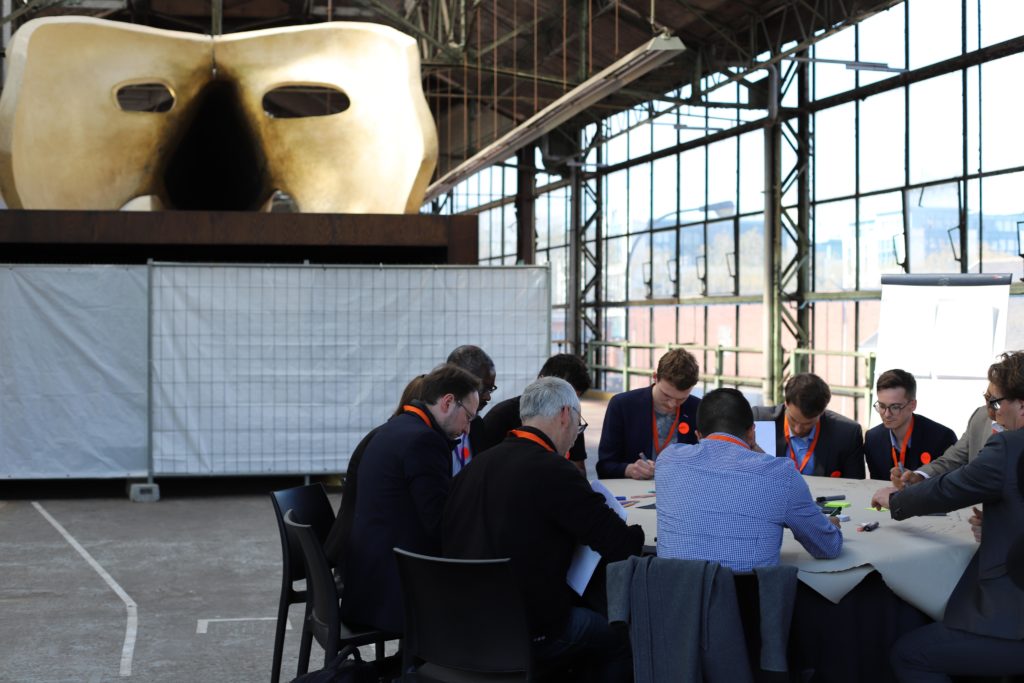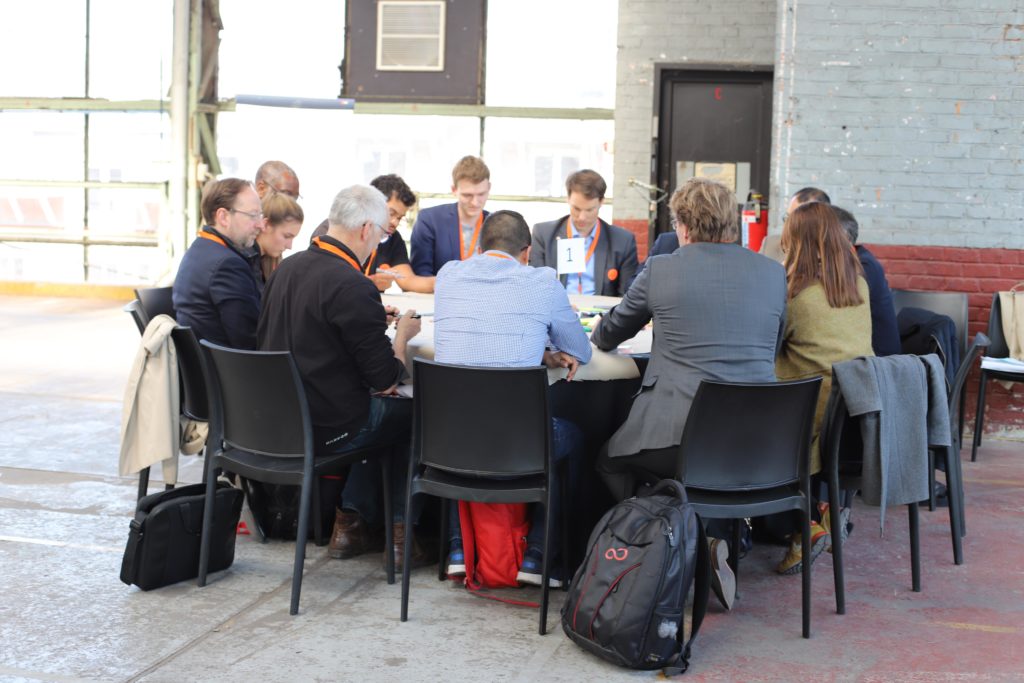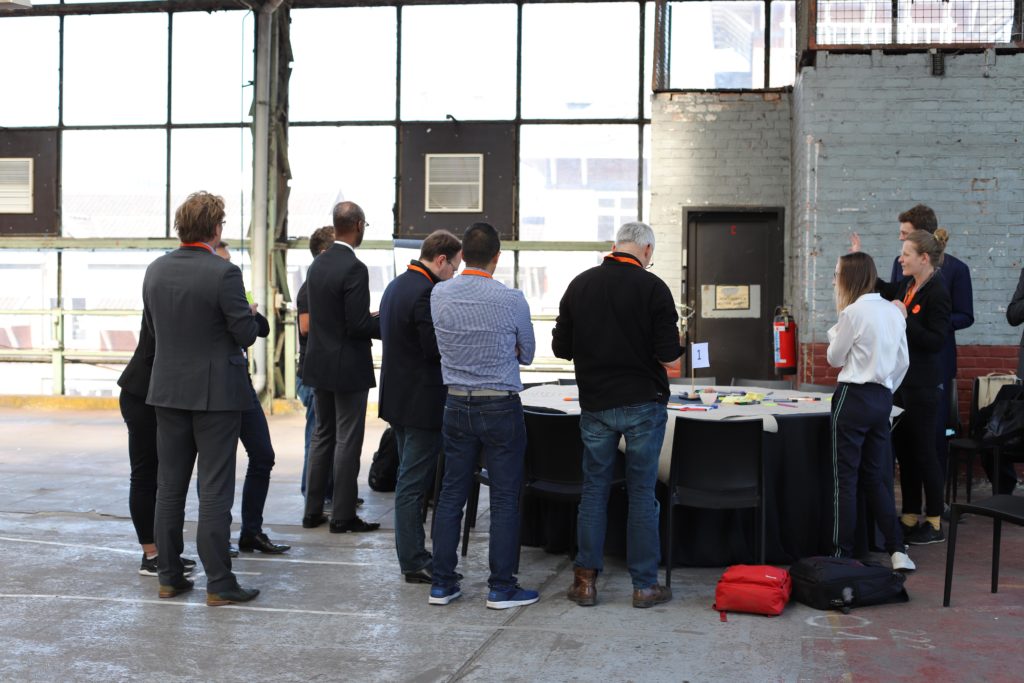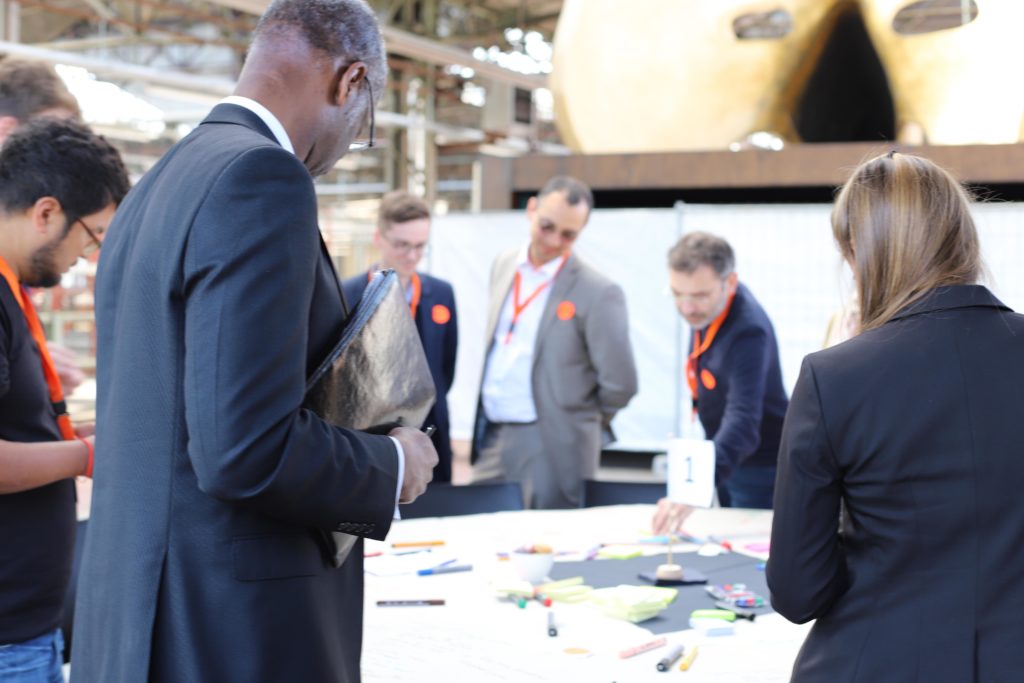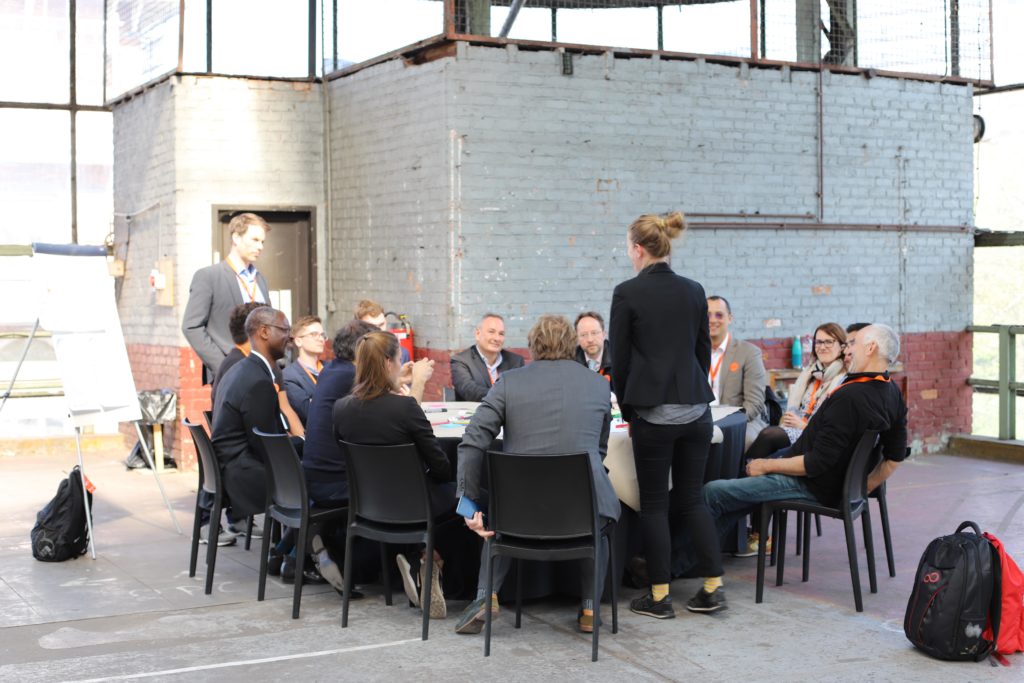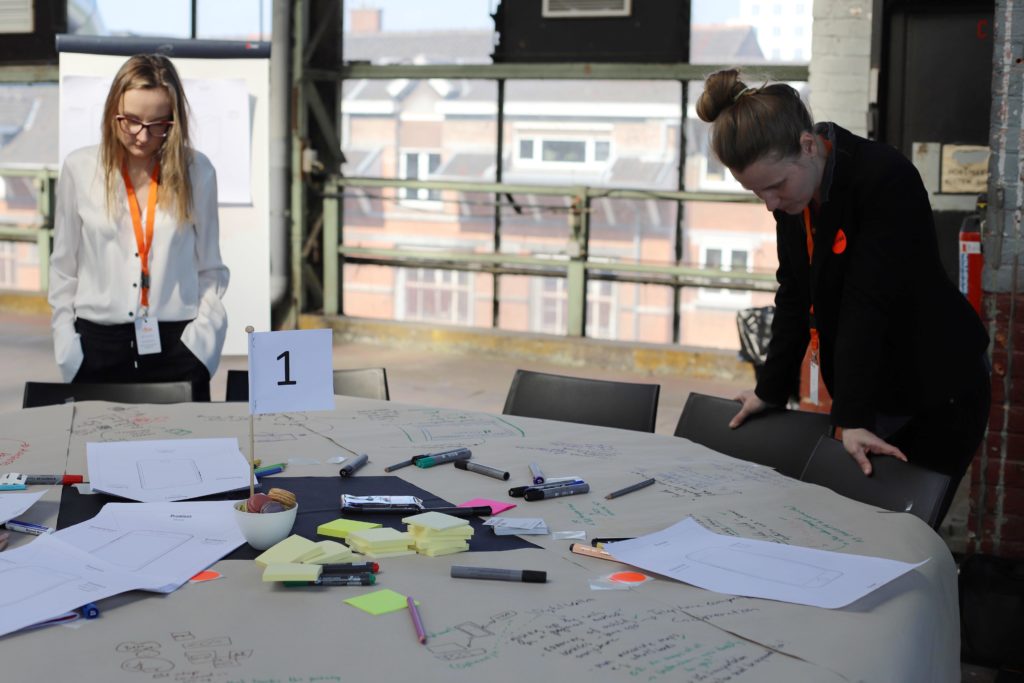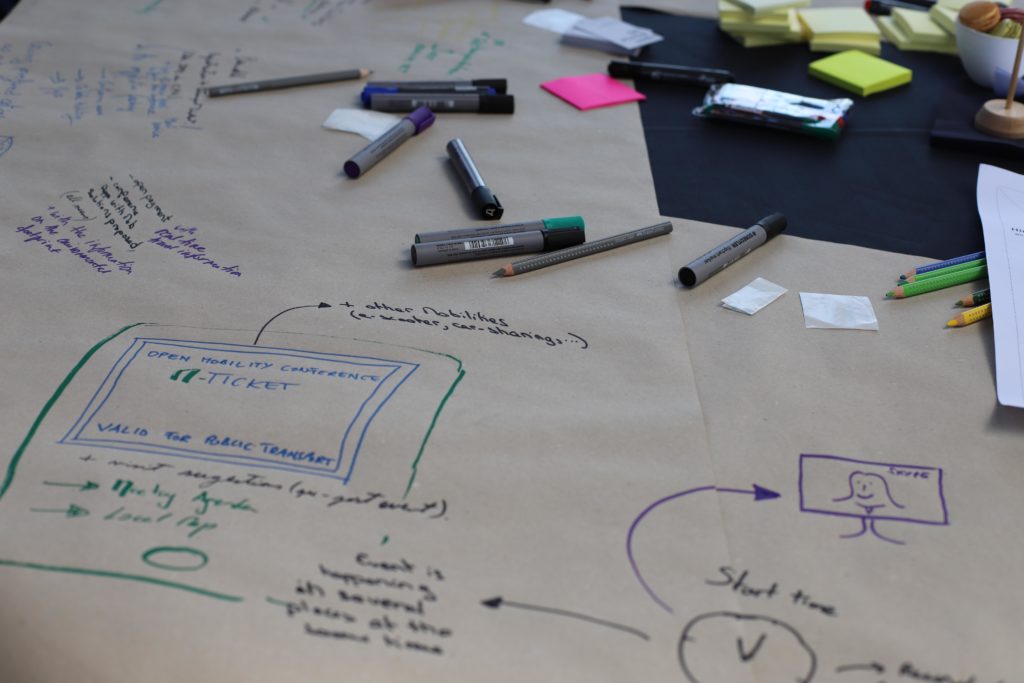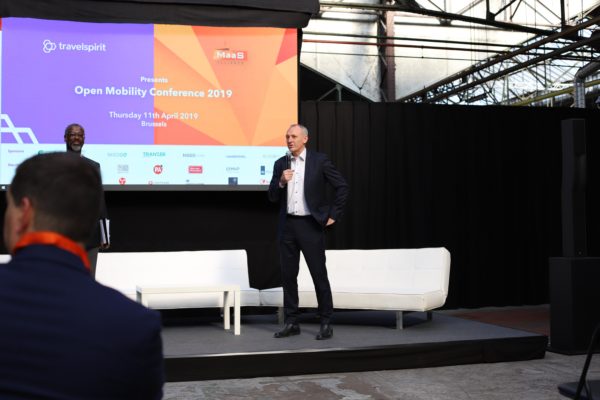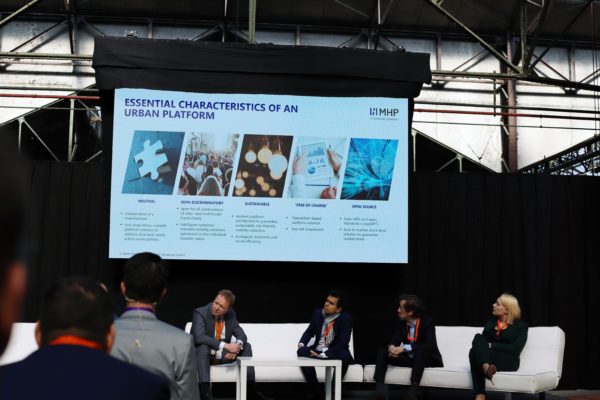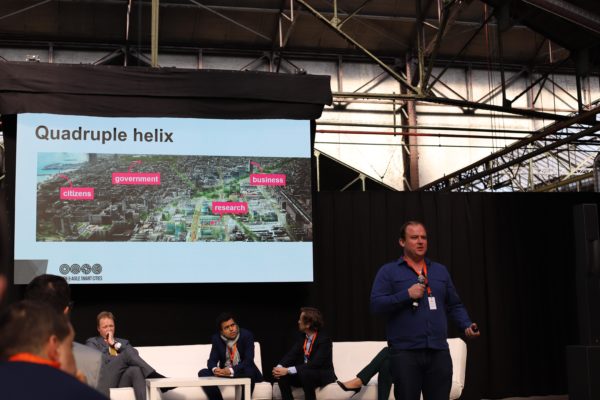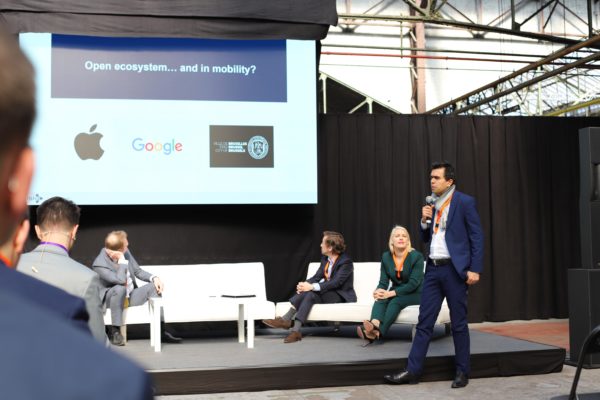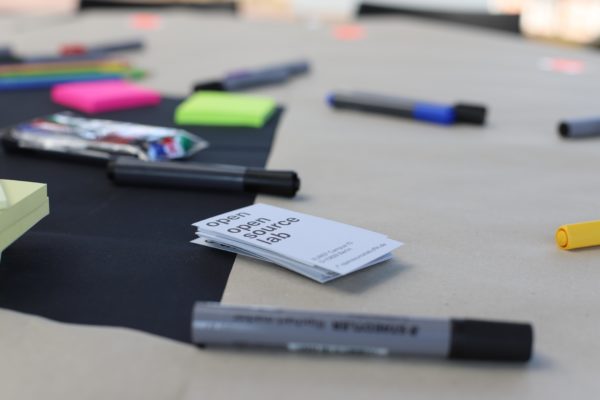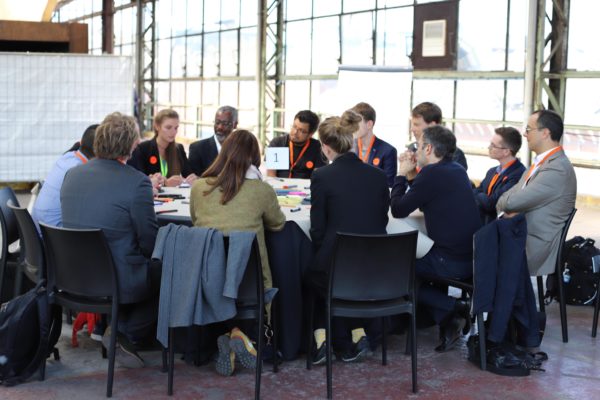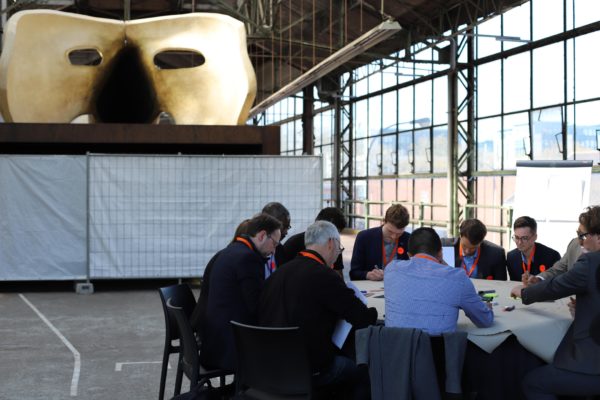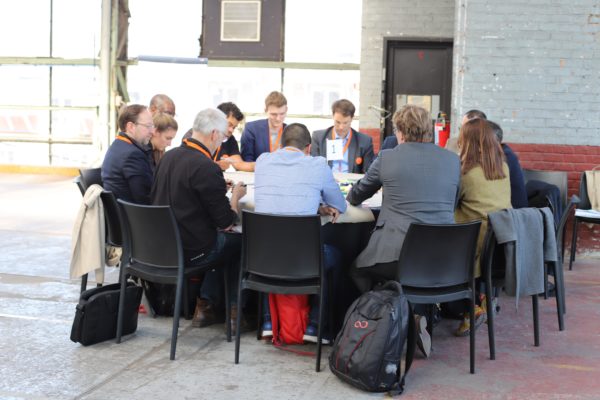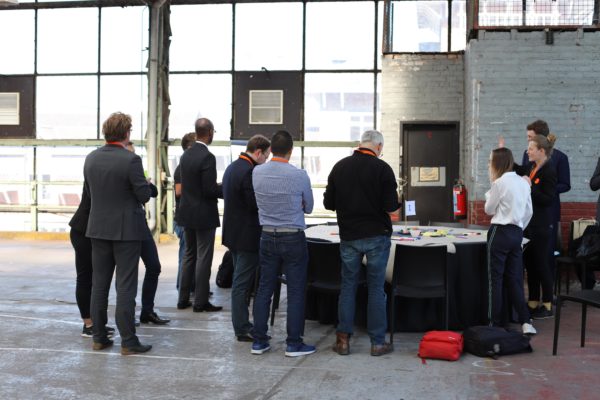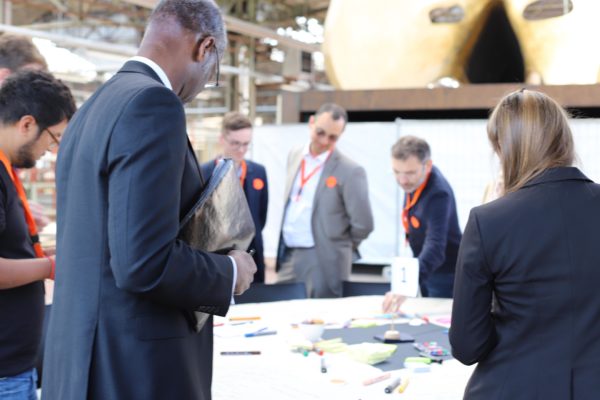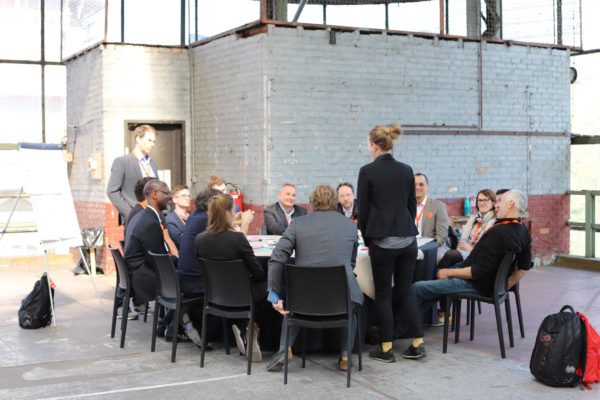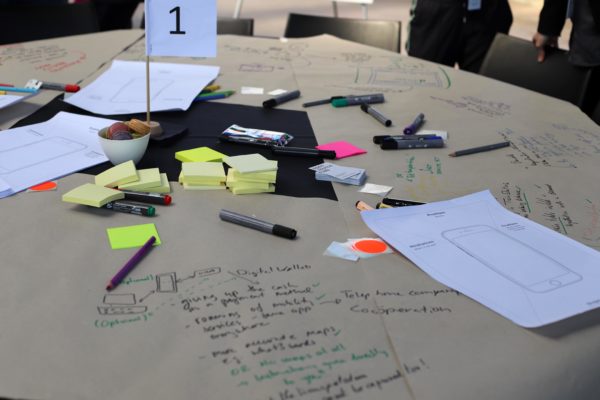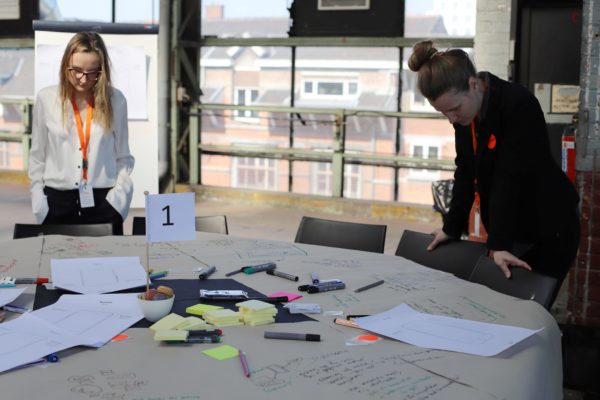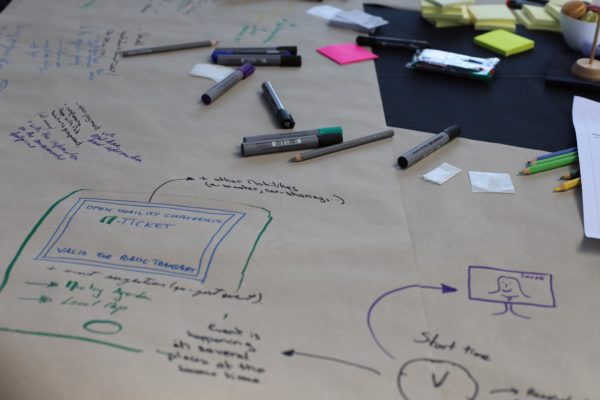The Open Mobility Conference 2019 brought together innovators, disruptive thinkers, transport authorities, mobility operators, technology providers, and infrastructure developers in a unique environment to start building answers to questions like:
- How can we create new mobility services that can be easily deployed, scaled and integrated seamlessly with existing provision?
- What does an open ecosystem and Internet of Mobility look like and what opportunities does it create?
- Why is openness so important?
This event organized by MaaS Alliance and the amazing TravelSpirit Foundation took place in a fantastic venue – a car factory turned into a museum for modern art. The former Citroën garage with its steel and glass architecture spread a rough charm but was perfectly in line with the atmosphere of innovation and transition that the mobility sector is going through. Participants from different industries and disciplines gathered in Brussels to look at what problems open mobility faces and what progress has been made so far. The conference was a great opportunity to connect with more like-minded people and other important stakeholders who want to create a more sustainable future of mobility. Find the full programme of the conference here.
Keynote speakers included Oana Savu of IATA giving insights into how the air travel industry is establishing an open ecosystem through the means of retailing standards and protocols for intermodal travel, as well as Koen Kennis, Vice Mayor of the city of Antwerp, showcasing how Antwerp became a smart mobility ecosystem.
Co-Designing Open Mobility
The Open Source Lab offered a hands-on co-design workshop on mobility related to conferences for a practical, real-world take on the open ecosystem of mobility. With our 13 participants, we did a quick tour of co-creation and shared ideation. The starting point was the situation we all had just been in – traveling to a conference. It wasn’t difficult to collect problems and irritations that happen throughout traveling to conferences for work. As we are all blinded by the science of data networks and protocols, standards and regulation criteria, we shall not forget that it is people who consume mobility for multiple reasons. Taking part in a conference is one of the minor causes to go on a journey, but it can lead to problems.
The main question we looked at was: How can we improve on mobility related to conferences? The workshop included the process of idea generation, added value description and conceptual applications of the ideas in open source mode. Through this experimental approach, we were able to touch upon key points in opening mobility and demonstrating the value of the open source paradigm using a fictional but real-life example.
After a busy 60 minutes, we created 4 conceptual prototypes for open source conference mobility solutions, co-designed by the participants of the workshop. From “Conference Tinder” to “The Golden Ticket” and “Con-VR-ence” (obviously it’s a virtual reality supported type of conference that does not require any travel) the solutions combine real problems, real technological opportunities, fictional marketing strategies and clever design ideas.
The main takeaway from our workshop was the successful creation of an atmosphere of creative participation, where ideas and thoughts can evolve in an open space with the common goal of creating a solution that is fit to solve the given problem. In such an atmosphere, all of the different stakeholders can come to the table and contribute their knowledge and expertise. This practice is crucial to be able to address the complex challenges of transitions for sustainable mobility systems.
Adding to this, the human-centric perspective on mobility (i.e. what have YOU experienced as problematic in traveling from A to B?) benefits the engagement of all stakeholders and creates a level playing field for talking and thinking about mobility solutions. Of course, for this mindset of “all ideas on the table belong to no one / to all of us” to resonate and spread, it will take time. It is a cultural shift that some Western cultures will possibly find difficult to adopt. As long as the general thinking throughout the mobility sector is economic growth focused, not all possibilities and solutions especially those in an open source context will be considered.
The conference, and the workshop in particular, were great opportunities to test our ability to speak the same “mobility language”, from public transport officials to private transport providers, policymakers to sales managers, and designers to developers. We enjoyed being part of this important transition.
